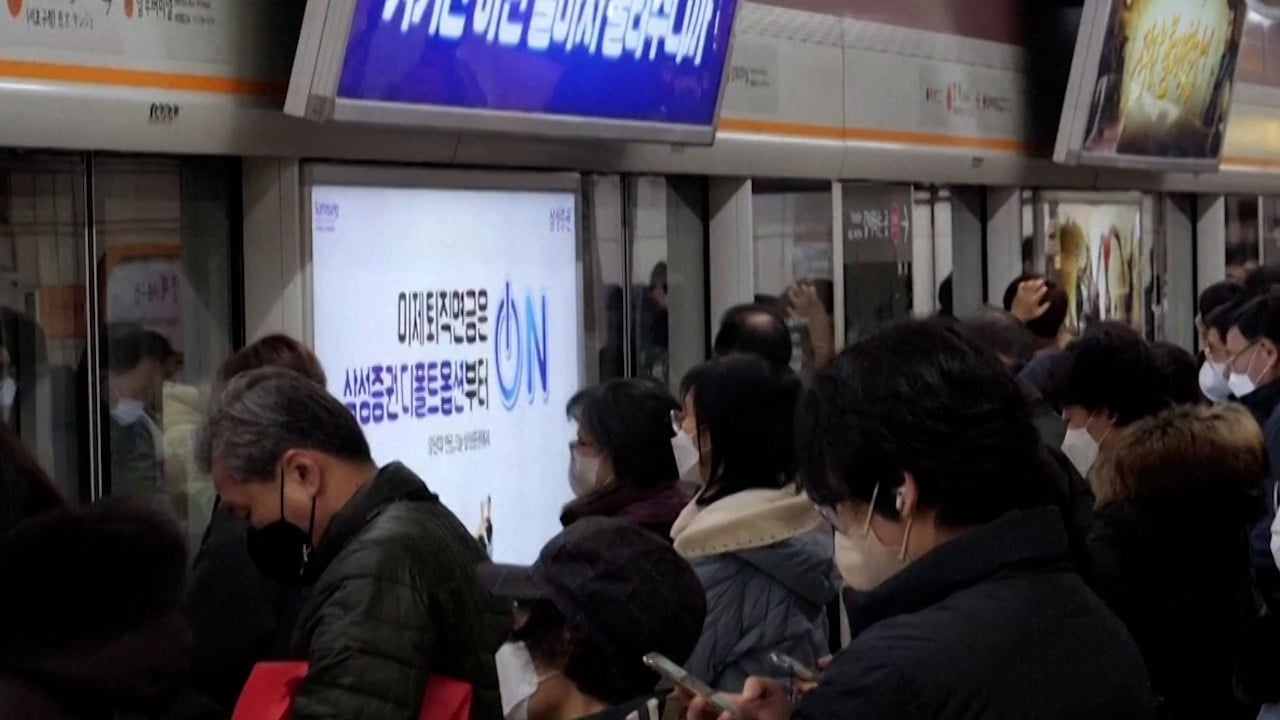
South Korea asks China for help in locating suspects who gave children drug-laced drinks
- A South Korean and a Chinese national, both living in China, are suspected of masterminding the distribution of drinks laced with drugs to children
- The drinks contained methamphetamine and were distributed to high-school students in Seoul
South Korean police have requested the help of Chinese authorities in locating two individuals based in China suspected of masterminding the distribution of drinks laced with drugs to high-school students in Seoul.

Lee, who has a history of involvement in voice phishing scams in South Korea, went to China last October, police said.
The drinks were distributed on April 3 to high school students by four other individuals in areas near Gangnam-gu Office Station, where there are renowned study academies.
The four allegedly offered the drinks for free claiming it was a “tasting event”, and tricked students into believing that such drinks were helpful for improving memory and concentration.
The crime ring then allegedly blackmailed the parents of students who consumed the drinks, demanding money to prevent their children from being reported to the police for drug use.
The four individuals claimed that they were just part-time workers hired through the internet and did not know that the drinks were laced with drugs.
According to the police, however, one of the four individuals had a history of involvement in voice-phishing scams dozens of times.
Kim allegedly specialises in altering phone numbers for voice phishing scam rings and has been connected to prior phishing scams at least 14 times.
During police questioning, Kim denied his connections with the drug-laced drinks, claiming he was not acquainted with Gil and had believed his work of altering phone numbers would be used only for voice phishing crimes.
The police have sought arrest warrants for Gil and Kim.
The police are expanding their investigation to look into the Kakao IDs used to communicate with the part-time workers who distributed the drinks and track down Gil’s methamphetamine supplier.
Recent drug-related crimes are beyond the addiction problems of individuals and have developed into new kinds of crimes
To cope with increasing concerns over drug-related crimes, the government will launch an inter-agency investigation team comprised of personnel from the prosecution, the police, the Korea Customs Service, the Ministry of Education, the Ministry of Food and Drug Safety and the Seoul Metropolitan Government.
“Recent drug-related crimes are beyond the addiction problems of individuals and have developed into new kinds of crimes combined with voice phishing and even threatening teenagers,” senior prosecutor Shin Bong-soo said during a media briefing, Monday.
Shin will co-head the envisioned special drug crime investigation team.
The team will enhance online and offline monitoring for signs of drug crimes and apply for heavier punishment – at least five years in prison and up to life sentences – for those who supply drugs to teenagers.


